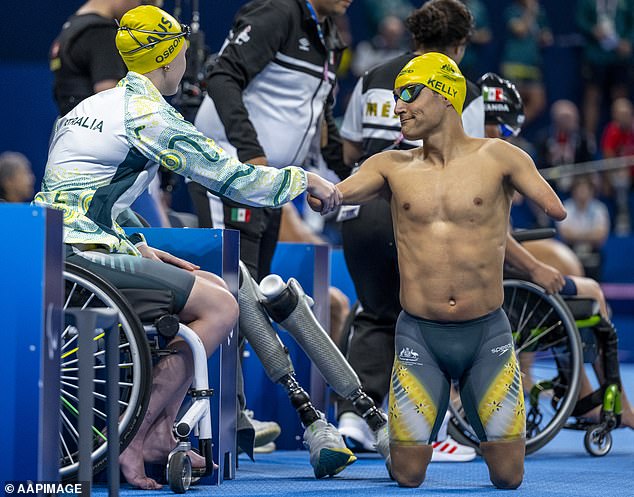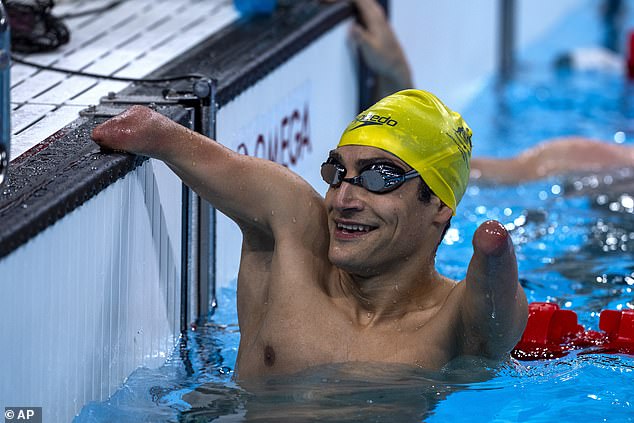- Ahmed Kelly was unfairly disqualified from his Paralympic swimming heat
- The Iraqi-born Australian performed a butterfly stroke during his freestyle leg.
- Officials had overlooked the fact that the butterfly is allowed during freestyle.
A Paralympic swimmer was unfairly disqualified on Sunday before being reinstated amid confusion at the Paris pool.
Iraqi-born Australian star Ahmed Kelly, who is missing both arms below the elbow and both legs completely, was disqualified by officials after his heat in the men’s 150m medley SM3.
Officials said Kelly had performed the butterfly instead of the freestyle in the final leg of the race.
Swimming Australia immediately launched an appeal against the decision, before confirming that its swimmer had been reinstated and would compete in the final.
To clarify the situation, fellow swimmer Annabelle Williams explained that officials had overlooked a little-known rule at the combined event.
“Now the good lawyer in me went to the rules and the definition of freestyle is that you can do whatever you want as long as it’s not backstroke or breaststroke,” she said on the Nine broadcast.
‘You can do any stroke you want – freestyle or two-arm butterfly. Ahmed had done (a) two-arm butterfly, so I can’t understand why that rule seems to have been broken.
Australian Paralympic swimmer Ahmed Kelly was unfairly disqualified on Sunday

The swimmer was deemed to have performed a butterfly stroke during his freestyle leg.

But officials have been informed that the butterfly can be performed during freestyle.
‘And secondly, swimming in the wrong order. He definitely didn’t do that. There’s a video of him swimming the first lap on his back, the second lap doing breaststroke and the third lap doing butterfly with both arms, which is absolutely allowed when swimming freestyle.’
Kelly will be joined by Australian teammate Grant ‘Scooter’ Patterson in the final.
Patterson, who rides a scooter, has diastrophic dysplasia, meaning he is very short, has short limbs and restricted mobility due to joint problems.


